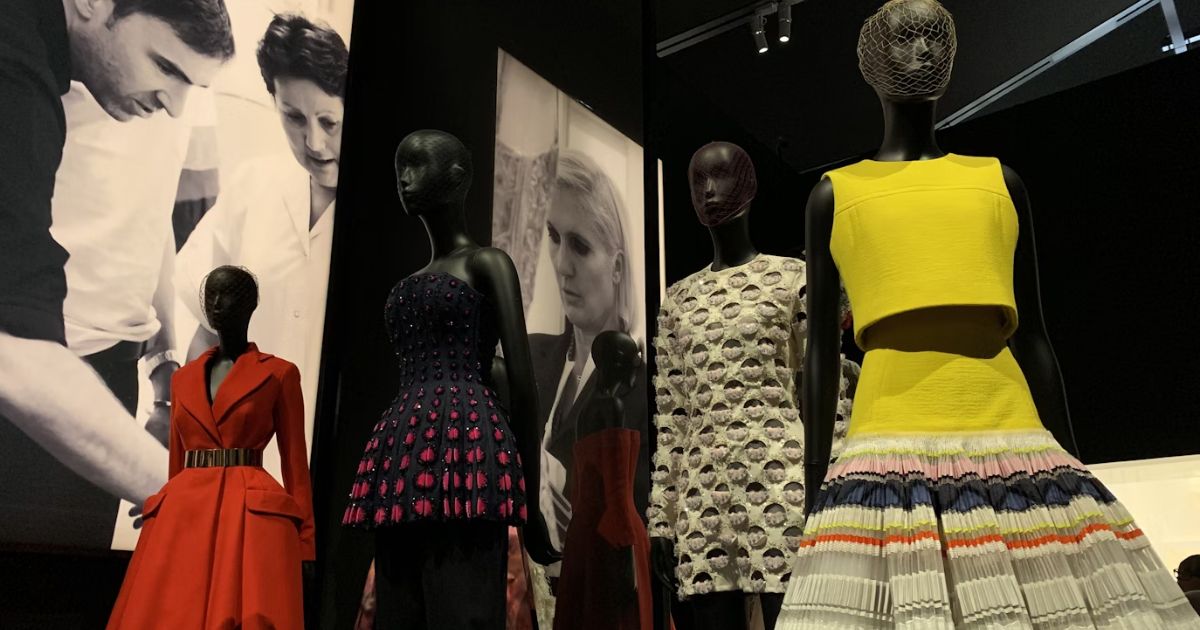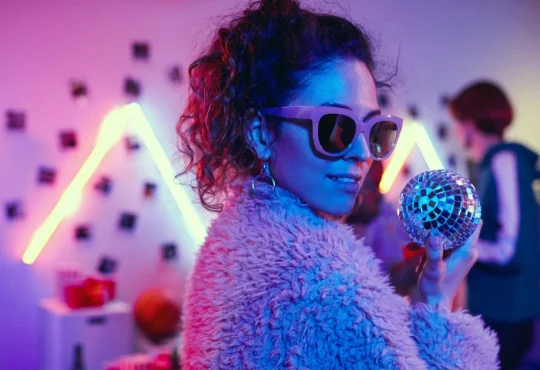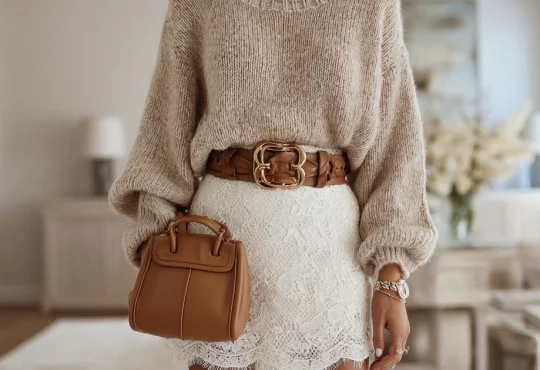
Fashion in 2025 will evolve with bold creativity, highlighting innovation, sustainability, and the richness of cultural diversity. Designers today are not just creating clothes—they are reshaping the fashion landscape, challenging traditional norms, and defining what luxury means in a modern, inclusive world. This article highlights the top 15 fashion designers who are leading the charge in 2025. From groundbreaking streetwear to couture craftsmanship, these visionaries are making waves with their forward-thinking collections that embrace sustainability, creativity, and inclusivity. Get ready to discover the talents whose work is shaping the future of fashion and setting the trends to watch for in the year ahead.
The Top 15 Visionary Designers to Watch
1. Virgil Abloh (Off-White / Louis Vuitton Men)
Virgil Abloh was a groundbreaking designer who melded streetwear aesthetics with high-end fashion. As the founder of Off-White and the first Black artistic director for Louis Vuitton Men’s, Abloh revolutionized luxury fashion by introducing elements from youth culture, music, and art.
Legacy: Abloh’s legacy lies in his ability to blur the lines between street culture and luxury, making both worlds accessible. His work has continued to influence global fashion trends, mainly through Off-White’s “luxury streetwear” and his revolutionary contributions at Louis Vuitton Men’s. Despite his passing in 2021, his influence on the fashion world remains strong in 2025.
Style: Bold graphics, deconstructed silhouettes, and a focus on cultural commentary defined Virgil’s style. Signature elements like quotation marks, zip ties, and industrial aesthetics became synonymous with his brand. His designs redefined luxury, incorporating street influences into haute couture while emphasizing individuality and inclusivity.
2. Demna Gvasalia (Balenciaga)
Demna Gvasalia is the creative mind behind Balenciaga, known for his bold, disruptive approach to fashion. His designs blend high fashion with streetwear, often using oversized silhouettes, deconstructed garments, and a subversion of traditional luxury codes.
Legacy: Gvasalia’s work at Balenciaga has solidified his status as one of the most influential designers of the 2020s. He reshaped Balenciaga into a global fashion powerhouse, challenging societal norms and pushing the boundaries of luxury with his unconventional and sometimes controversial designs.
Style: Oversized shapes, gender-neutral collections, and a mix of street culture with high fashion characterize Demna’s style. His creations often feature sharp contrasts, minimalistic color palettes, and industrial-inspired design. His avant-garde approach continues to define the fashion world and challenges the very notion of luxury fashion.
3. Kim Jones (Fendi / Dior Men)
Kim Jones is a British designer known for his innovative approach to blending street culture with high fashion. As the creative director for Dior Men and Fendi, Jones has successfully created collections that merge modern luxury with street-inspired design.
Legacy: Jones’ legacy is built on creating a seamless fusion of couture and streetwear, which has garnered global attention. His work at Dior Men and Fendi has reshaped both brands, establishing him as a leader in redefining contemporary menswear.
Style: Jones’ style combines sleek, minimalist designs with avant-garde elements. His work often incorporates clean lines, tailored structures, and a blend of street and high-fashion aesthetics, making him a defining figure in the menswear industry.
4. Alessandro Michele (Gucci)
Alessandro Michele is the visionary designer behind Gucci. He is celebrated for his eclectic and maximalist approach to fashion. His designs combine historical influences with modern sensibilities, creating a unique and recognizable style for the brand.
Legacy: Michele’s legacy lies in his ability to redefine luxury by embracing fluidity and bold aesthetics. His approach has reinvigorated Gucci, making it one of the most talked-about brands in modern fashion, influencing the broader fashion landscape in 2025.
Style: Alessandro’s style is known for its opulent, maximalist designs, mixing vintage elements with contemporary influences. His use of bold colors, intricate patterns, and gender-fluid pieces has made Gucci a leading force in global fashion.
5. Telfar Clemens (Telfar)
Telfar Clemens is the designer behind the brand Telfar, which is known for creating inclusive, unisex luxury fashion. His designs prioritize accessibility, offering high-quality, affordable luxury for all genders.
Legacy: Telfar’s legacy is built on inclusivity and accessibility in fashion. His “It” bags, particularly the Telfar Shopper, have become symbols of unisex luxury. He continues to challenge the traditional fashion industry by making luxury fashion accessible without compromising on style or quality.
Style: Telfar’s style blends minimalist aesthetics with a focus on functionality. His designs emphasize clean lines and simple, versatile shapes that appeal to a diverse audience. His commitment to inclusivity and sustainability positions Telfar as an essential voice in the fashion industry.
6. Stella McCartney
Stella McCartney is a British designer known for her commitment to sustainability and ethical fashion. She has pioneered the use of eco-friendly materials and animal-free products, making her one of the leading figures in sustainable luxury fashion.
Legacy: Stella McCartney’s legacy is rooted in her dedication to creating beautiful and responsible fashion. As a pioneer of sustainable fashion, she has set the standard for eco-conscious luxury and continues to inspire the industry to prioritize sustainability.
Style: McCartney’s style combines minimalist elegance with eco-conscious materials. Her designs often feature clean lines, tailored fits, and an understated sophistication that appeals to environmentally conscious consumers.
7. Jonathan Anderson (Loewe)
Jonathan Anderson is a Northern Irish designer known for his work at Loewe, where he combines traditional craftsmanship with contemporary artistic influences. His designs are often experimental, pushing the boundaries of high-concept fashion.
Legacy: Anderson has established himself as a creative visionary, with Loewe becoming synonymous with avant-garde luxury. His legacy is built on his ability to blend artistry and craftsmanship, redefining what is possible in high fashion.
Style: Jonathan’s style is a mix of traditional craftsmanship and modern innovation. His designs often explore the intersection of fine art and fashion, with sculptural forms and bold, experimental concepts taking center stage.
8. Daniel Lee (Bottega Veneta)
Daniel Lee is the creative director at Bottega Veneta, known for his minimalist approach to luxury fashion. He has revitalized the brand with sleek, modern designs that combine understated elegance with innovative craftsmanship.
Legacy: Lee’s legacy lies in his ability to transform Bottega Veneta into one of the most sought-after luxury brands of the 2020s. His minimalist yet fashion-forward designs have redefined the brand and set trends in luxury fashion.
Style: Lee’s style is defined by minimalist sophistication and meticulous craftsmanship. His designs feature clean lines, luxurious textures, and understated elegance, making Bottega Veneta a symbol of modern luxury.
9. Simone Rocha
Simone Rocha is a British designer known for her romantic, feminine designs, which blend softness with an edgy, rebellious spirit. Her collections feature intricate embellishments and delicate textures.
Legacy: Rocha’s legacy is defined by her ability to fuse traditional femininity with a contemporary, bold twist. Her work continues to influence the fashion world, and she remains a key figure in redefining modern femininity in fashion.
Style: Simone Rocha’s style is marked by romanticism and a playful rebellion. She combines delicate fabrics, intricate embellishments, and structured silhouettes with an edgy, modern flair, creating designs that are both elegant and avant-garde.
10. Victoria Beckham
Victoria Beckham is a British designer known for her minimalist approach to fashion. Her collections focus on clean lines, sophisticated silhouettes, and understated elegance, empowering women with refined, timeless style.
Legacy: Beckham has carved out a niche in the fashion world with her sophisticated, minimalist designs. Her legacy is rooted in empowering women through elegance and creating a brand that epitomizes modern sophistication.
Style: Sleek, clean lines and tailored fits define Victoria’s style. Her minimalist approach focuses on elegance and modern femininity, making her a key figure in luxury fashion.
11. Hedi Slimane (Celine)
Hedi Slimane is a French designer renowned for his modern, rock-inspired aesthetic, particularly during his tenure at Celine. His designs have reinvigorated the brand with youthful energy, blending sharp tailoring with a cool, minimalist edge.
Legacy: Slimane’s legacy redefines modern luxury with a minimalist and androgynous approach. His work at Celine steered the brand toward a contemporary direction while preserving its prestige. In 2025, his influence continues to shape the future of luxury fashion.
Style: Slimane is known for his sleek, sharp designs that draw from rock ‘n’ roll and youthful subcultures. His minimalist aesthetic combines crisp tailoring, skinny silhouettes, and high-fashion elements, creating a refined yet rebellious look that defines modern luxury.
12. Rick Owens
Rick Owens is an American designer whose avant-garde designs mix Gothic, punk, and high fashion elements. Known for his sculptural, dramatic creations, he has carved out a unique space in the fashion industry with his boundary-pushing aesthetic.
Legacy: Owens’ legacy lies in his radical approach to fashion that blends subculture with high fashion. His unconventional designs challenge traditional notions of beauty, making him one of the most influential figures in avant-garde fashion. His sculptural designs continue to inspire and influence emerging designers into 2025.
Style: Rick Owens’ style is defined by dark, edgy, and avant-garde designs that blend Gothic and punk influences with high-fashion sensibilities. His sculptural, often oversized pieces and dramatic silhouettes have become synonymous with boundary-pushing creativity, making him a standout in the fashion world.
13. Pierpaolo Piccioli (Valentino)
Pierpaolo Piccioli is an Italian designer and the creative director of Valentino. He is known for his sophisticated, couture-inspired collections, which marry classic elegance with modern innovation. His designs often explore bold color palettes and refined craftsmanship.
Legacy: Piccioli has transformed Valentino into a powerhouse of refined luxury, blending heritage with modern flair. His collections have revitalized the brand while preserving its couture status, solidifying his legacy in haute couture and modern luxury as he leads Valentino into 2025.
Style: Piccioli’s style combines classic couture craftsmanship with innovative elements, featuring bold colors, delicate details, and sophisticated tailoring. His designs resonate in the fashion world by blending tradition with modernity.
14. Miuccia Prada (Prada / Miu Miu)
Miuccia Prada is the Italian designer behind Prada and Miu Miu. She is known for her intellectual and experimental approach to fashion. Her designs often challenge societal norms, mixing highbrow and lowbrow elements to create thought-provoking collections.
Legacy: Prada’s legacy is shaped by Miuccia’s unique ability to blend intellectual rigor with daring fashion. Her work continues to challenge conventions and redefine luxury fashion, making her a key figure in shaping the future of high fashion. Her influence remains strong in 2025, as both Prada and Miu Miu maintain their status as leading names in the industry.
Style: Miuccia’s style is experimental and intellectual. She often juxtaposes high-fashion elements with everyday streetwear and subcultural references. Her collections are known for their boldness. She mixes highbrow aesthetics with lowbrow references, creating a tension that challenges traditional notions of beauty and luxury.
15. Maria Grazia Chiuri (Dior)
Maria Grazia Chiuri was Dior’s first female artistic director. She is known for her feminist approach to fashion. Her collections celebrate femininity while empowering women, blending elegance with progressive ideals.
Legacy: Chiuri’s legacy at Dior is defined by her focus on women’s empowerment and gender equality in fashion. Her collections continue to redefine femininity in modern luxury, making her a key figure in the evolution of fashion as a tool for social change. Her work will remain a touchstone for years to come.
Style: Chiuri’s style blends classic Dior elegance with modern feminist ideals. Her collections are known for their sophisticated, empowered aesthetic, often featuring delicate details and elegant silhouettes that convey both strength and grace. Her focus on women’s empowerment has made her one of the most critical voices in contemporary fashion.
Visionary Designers Shaping the Fashion Landscape of 2025
The fashion landscape of 2025 is defined by visionary designers who are blending creativity, sustainability, and cultural diversity to redefine what luxury and style mean in a modern, inclusive world. From the groundbreaking work of Virgil Abloh and Demna Gvasalia to the eco-conscious designs of Stella McCartney and Telfar Clemens, these designers are challenging traditional norms and shaping the future of fashion with bold, innovative approaches. Their commitment to pushing boundaries, embracing diversity, and advocating for sustainability is not only transforming the fashion industry but also influencing broader cultural shifts. Looking ahead, these 15 designers are poised to continue inspiring and leading the way, setting trends that will shape the future of fashion for years to come.




